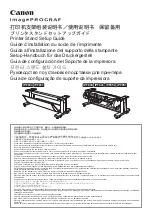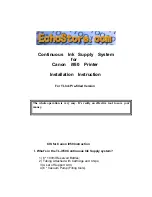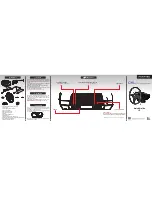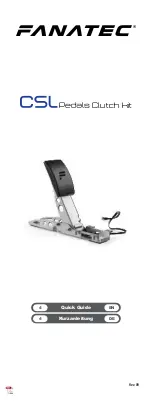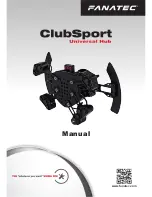
4/12
Pizzato Elettrica srl
via Torino, 1
36063 MAROSTICA (VI)
ITALY
e-mail: [email protected]
web site: www.pizzato.com
Phone: +39.0424.470.930
ZE FOG44B18-EU
1 INFORMATION ON THIS DOCUMENT
1.1 Function
The present instruction manual provides information on installation, connection and
safe use for the following articles:
SR B••••••-•••
1.2 Target audience
The operations described in this instruction manual must be carried out by qualified
personnel only, who are fully capable of understanding them, and with the technical
qualifications required for operating the machines and plants in which the safety de-
vices are to be installed.
1.3 Application field
These instructions apply exclusively to the products listed in paragraph Function, and
their accessories.
1.4 Original instructions
The Italian language version is the original set of instructions for the device. Versions
provided in other languages are translations of the original instructions.
2 SYMBOLS USED
This symbol indicates any relevant additional information.
Attention: Any failure to observe this warning note can cause damage or mal-
function, including possible loss of the safety function.
3 DESCRIPTION
3.1 Device description
The safety device described in this manual is defined as a coded, type-4 interlocking
device without contact acc. to EN ISO 14119.
Coded magnetic sensors of the SR B series are devices suitable for monitoring
protections and guards which, when linked to a safety module, can create a system
with safety category up to SIL 3 according to EN 62061, up to PL e according to
EN ISO 13849-1 and up to category 4 according to EN ISO 13849-1.
The devices consist of a sensor that detects the magnetic field and which must be
fixed to the machine structure and of a coded magnetic actuator, which is connected
to the movable guard.
3.2 Intended use of the device
- The device described in this manual is designed to be applied on industrial machines
for state monitoring of movable guards.
- The direct sale of this device to the public is prohibited. Installation and use must be
carried out by qualified personnel only.
- The use of the device for purposes other than those specified in this manual is
prohibited.
- Any use other than as expressly specified in this manual shall be considered unin-
tended by the manufacturer.
- Also considered unintended use:
a) using the device after having made structural, technical, or electrical modifications
to it;
b) using the product in a field of application other than as described in paragraph
TEChNICAL DATA.
4 INSTALLATION INSTRUCTIONS
Attention: Installing a protective device is not sufficient to ensure operator safety
or compliance with machine safety standards or directives. Before installing a protec-
tive device, perform a specific risk analysis in accordance with the key health and
safety requirements in the Machinery Directive. The manufacturer guarantees only
the safe functioning of the product to which this instruction manual refers, and not the
functional safety of the entire machine or entire plant.
4.1 Actuation directions
The arrows on the sensor and actuator housing must be opposing when the
guard is closed, regardless of approach direction
4.2 Selection of the actuator type
SR series actuators are classified as low level coded in accordance with EN ISO 14119.
A suitable actuator must be used to actuate the safety device; conventional magnets
may not be used.
Attention: Any other low level coded actuators present in the same place where
the device has been installed must be segregated and kept under strict control in
order to avoid any bypassing of the safety device. If new low level coded actuators
are fitted, the original low-level coding actuators must be disposed of or rendered
inoperable.
4.3 Fixing of the device
Attention: Always affix the device with at least 2 M4 screws with resistance
class 4.6 or higher, and flat seating heads which are inserted into opposite holes on
the housing. Install the screws with medium resistance thread lock, and a number of
threads engaged equal to or greater than the screw diameter. The device must never
be fixed with less than 2 screws. The tightening torque of the two M4 screws must be
between 0.8 and 2 Nm.
4.4 Fixing the actuator to the guard
Attention: As required by EN ISO 14119, the actuator must be fixed immovably
to the door frame.
Always affix the actuator with at least 2 M4 screws with resistance
class 4.6 or higher, and flat seating heads which are inserted into
opposite holes on the housing. Install the screws with medium
resistance thread lock, and a number of threads engaged equal
to or greater than the screw diameter. The actuator must never be
fixed with fewer than 2 screws. The tightening torque of the two
M4 screws must be between 0.8 and 2 Nm.
For correct fixing, other means can also be used, such as rivets,
non-removable security screws (one-way), or other equivalent fixing system, provided
that it can ensure adequate fixing.
Do not use a hammer for the adjustments, unscrew the screws and adjust the device
manually, then tighten it in position.
4.5 Assembly of multiple sensor-actuator systems
50 mm
Where more than one safety device is installed
to the same machine, the minimum installation
distance between sensor and actuator systems
must be at least 50 mm.
4.6 Installation on ferromagnetic material
If possible do not mount the sensor and the
actuator on ferromagnetic materials.
To avoid a reduction in the switching distances,
use the special VS SP1BA1 spacer.
4.7 Internal cable and connector connections
With cable (2NC+1NO)
With cable (2NC)
With cable (1NC+1NO)
Green
Brown
Grey
Pink
White
Yellow
Black
White
Brown
Blue
Black
White
Brown
Blue
With M8 connector (2NC)
With M8 connector (1NC+1NO)
1
2
3
4
1
2
3
4
1
2
3
4
1
2
3
4
With M12 connector
(2NC+1NO)
With M12 connector
(2NC)
With M12 connector
(1NC+1NO)
3
4
5
6
7
8
1
2
3
4
5
6
7
8
1
4
2
3
1
2
3
4
1
2
3
4
1
4
2
3
Attention: If the sensor is the only safety device installed on the guard, always
use at least 2 channels connected to a safety module.
When using a SR B•41AN• (2NC+1NO) sensor with cable, the two channels used
must include the yellow and green cables. When using a SR B•41AM0.1 (2NC+1NO)
sensor with connector, the two channels used must include pins 5-6.
If these requirements are not met, the sensor will have no anti-tampering code.
4.9 Connection with safety modules
Attention: A coded magnetic sensor alone cannot be used for safety functions
because its operating principles are not considered safe by the standards. For this
reason, a magnetic sensor coded for use in safety applications must always be
connected to a safety module with at least two channels that monitors the proper
function.
Use the safety sensors and actuators in conjunction with the safety modules indicated.
The sensor connected to the safety module can be classified as a proximity device
with defined behaviour under fault conditions (PDDB in accordance with EN 60947-
5-3).
SR B••••••-•••
devices can be connected to safety modules:
CS AR-01••••*; CS AR-02••••*; CS AR-04••••*; CS AR-05••••; CS AR-06••••;
CS AR-08••••; CS AR-46•024; CS AR-91••••; CS AR-94••••; CS AR-95••••;
CS AT-0•••••; CS AT-1•••••; CS AT-3•••••; CS FS-5•••••; CS MF•••••-••; CS MP•••••-••.
(*) Compatible with modules with
production batch later than 06/2014 only.
The SR BD42A•• sensor is compatible with CS MF202••-P4 and CS MP•••••-•• modules only.













